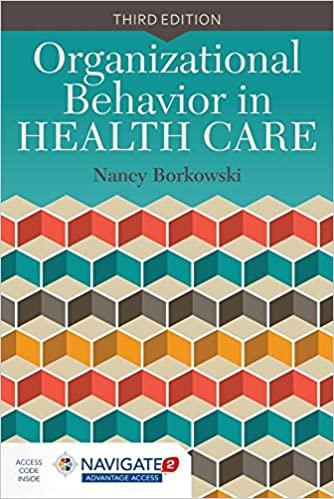How could you use appreciative inquiry to approach the problem? When they started practicing medicine, most surgeons
Question:
How could you use appreciative inquiry to approach the problem?
When they started practicing medicine, most surgeons say, there was little or no information about just how many pain pills patients needed after specific procedures.
As a result, patients often were sent home with the equivalent of handfuls of powerful and addictive medications. Then the opioid crisis hit, along with studies showing one possible side effect of surgery is long-term dependence on pain pills. These findings prompted some medical centers and groups of physicians to establish surgery-specific guidelines.
But questions remained: Would anyone pay attention to the guidelines and would smaller amounts be sufficient to control patients’ pain?
Yes, appears to be the answer to both — in some measure — according to a study that encompassed nearly 12,000 patients in 43 hospitals across Michigan. The researchers published details of their work in a letter Wednesday in the New England Journal of Medicine.
Seven months after specific guidelines for certain operations were issued in October 2017, surgeons reduced by nearly one-third the number of pills they prescribed patients, with no reported drop in patient satisfaction or increase in reported pain, according to the research.
“We’re not trying to deny patients narcotics,”
said Dr. Joceline Vu, one of the paper’s authors and a general surgery resident at the University of Michigan.“ But there’s an acceptable level where people are still happy and still have their pain under control, but we have dropped the number to a minimum.”
Step by Step Answer:






